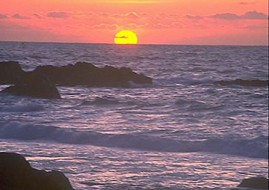From Advisory Committee on Judicial Ethics: Opinion 08-213 (Dec. 4, 2008)
[Originally published in NYPRR February 2009]
From time to time, NYPRR will publish an Opinion of the Advisory Committee on Judicial Ethics. The Opinions published are those selected by Justice George D. Marlow, Committee Chair, and Jeremy R. Feinberg, who serves among the Committee’s Counsel. Permission to reprint the Opinion below was requested by NYPRR because of its significance to New York lawyers who appear before the Courts.
The Advisory Committee on Judicial Ethics (www.nycourts.gov/ip/acje) responds to written inquiries from New York State’s full- and part-time judges, candidates for elective judicial office, and quasi-judicial officials such as support magistrates, court attorney-referees, and judicial hearing officers. The committee’s opinions interpret the Rules Governing Judicial Conduct [22 NYCRR Part 100], the Code of Judicial Conduct and Part 36 of the Rules of the Chief Judge [22 NYCRR Part 36]. Justice George D. Marlow chairs the committee of 26 judges, and Maryrita Dobiel, Esq. is its Chief Counsel.
Opinion 08-213 (Dec. 4, 2008)
DIGEST: A judge may attend the public inauguration of the President of the United States, but a judge who is not within his/her Window Period may not attend an inaugural ball hosted by a state political delegation, a political organization, or political interest group.
RULES: 22 NYCRR 100.0(Q); 100.2; 100.2(A); 100.4(A)(1) – (3); 100.5(A); 100.5(A)(1)(c), (d), (e), (g), (i); Opinions 06-147; 03-114; 00-107 (Vol. XIX); 97-145 (Vol. XVI); 89-48 (Vol. III).
OPINION: A sitting judge inquires whether he/she may attend the public inauguration of the President of the United States and whether he/she may also attend an inaugural ball hosted by the inauguration committee of a state political delegation, a political organization, or a political interest group.
A sitting judge inquires whether he/she may attend the public inauguration of the President of the United States and whether he/she may also attend an inaugural ball hosted by the inauguration committee of a state political delegation, a political organization, or a political interest group.
A judge must avoid impropriety and the appearance of impropriety in all the judge’s activities [see 22 NYCRR 100.2] and must conduct him/herself at all times in a manner that promotes public confidence in the integrity and impartiality of the judiciary [see 22 NYCRR 100.2[A]]. A judge may engage in extra-judicial activities as long as such activities do not (1) cast reasonable doubt on the judge’s capacity to act impartially as a judge; (2) detract from the dignity of judicial office; or (3) interfere with the proper performance of his/her judicial duties and are not incompatible with judicial office [see 2 NYCRR 100.4[A][1]-[3]]. Judges are generally prohibited from engaging either directly or indirectly in any political activity outside of the Window Period during which the judge him/herself would be a candidate for judicial office [see 22 NYCRR 100.0[Q]; 100.5[A]; Opinion 06-147]. In particular, outside his/her window period, a judge is prohibited from engaging in any partisan political activity, from participating in any political campaign for any office, from publicly endorsing or publicly opposing another candidate for public office, from attending political gatherings, and from purchasing tickets for politically sponsored dinners or other functions [see 22 NYCRR 100.5[A][1][c], [d], [e], [g], [i]].
The Committee previously has advised that a judge may attend the induction ceremony of another judge and the reception that followed [see Opinion 03-114), and that a judge may preside at the swearing-in ceremonies of various newly elected local officials [see Opinion 97-145 (Vol. XVI)]. A judge who is not a candidate for judicial office may not, however, attend a gala ball following the swearing-in ceremonies of such local officials that is held for the purpose of post campaign fund-raising [see Id.].
A judge, therefore, may attend the public inauguration of the President of the United States, which is a civic event at which the Chief Justice of the United States Supreme Court administers the presidential oath of office [see Opinions 03-114; 97-145 (Vol. XVI); 89-48 (Vol. III)]. A judge who is not within his/her window period, however, may not attend an inaugural ball hosted by a state political delegation, by a political entity, or by a political interest group as all are partisan political events that a judge who is not within his/her window period is prohibited from attending [see 22 NYCRR 100.5[A]; Opinions 06-147;00-107 (Vol. XIX); 97-145 (Vol. XVI)].
DISCLAIMER: This article provides general coverage of its subject area and is presented to the reader for informational purposes only with the understanding that the laws governing legal ethics and professional responsibility are always changing. The information in this article is not a substitute for legal advice and may not be suitable in a particular situation. Consult your attorney for legal advice. New York Legal Ethics Reporter provides this article with the understanding that neither New York Legal Ethics Reporter LLC, nor Frankfurt Kurnit Klein & Selz, nor Hofstra University, nor their representatives, nor any of the authors are engaged herein in rendering legal advice. New York Legal Ethics Reporter LLC, Frankfurt Kurnit Klein & Selz, Hofstra University, their representatives, and the authors shall not be liable for any damages resulting from any error, inaccuracy, or omission.
Related Posts
« Chief Judge Kaye Leaves a Rich Professional Responsibility Legacy Comparing New NY Rules of Professional Conduct to Existing NY Code of Professional Responsibility (Part I) »











